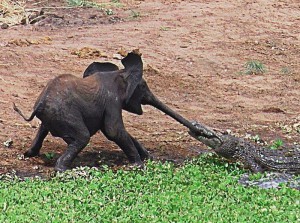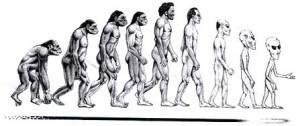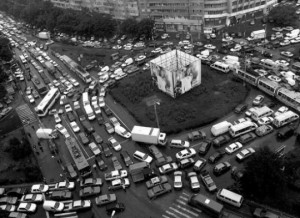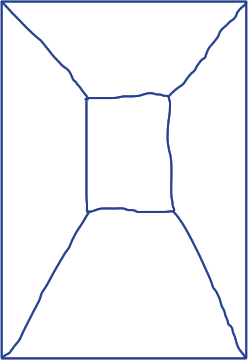The website spacecollective.org is where geeks feel understood. I don’t meet too many people who know what I mean when I say the word ‚jetpack’. Then again, maybe it’s the wrong word to say. When I explain that I mean a backpack with rockets attached to give you the ability fly, some may think I’m materialistic and lazy, but it’s not only about wanting to have an easier way to school.
It’s about something amazing that in theory we have the technology for, but isn’t quite developed yet, not well enough anyway.
Something virtually real but just out of reach for the general public.
Like the prosthesis you control with your mind, for example, that are being developed over the last years. Dreams are coming true, and it’s all thanks to science.
I rely on science just like another person may rely on god. Some people don’t respect people without a religion. But that non-religion mindset is a religion in itself. I believe in it, I defend it and it is what I am, as in, it is part of everything and everywhere. It is what makes the world a beautiful and cruel place.
The importance of discussing and learning about science is simply that it is interesting as hell. It gave me the shivers when I first learned about the theory of relativity, and the motivation to find out more about what we are, where we are and why is without boundaries.
The beauty of spacecollective.org is the broad spectrum that is posted. It’s not only about technology or progress; it’s just as much about ways of looking and thinking, reflecting on morals and ideas, on value of emotion and logic. It’s philosophical, a root attribute of scientific research.
In my opinion it is crucial to think about those arguments when working with scientific or technological research. We’ve learned over the past decades that it’s not just about getting faster, stronger, better, but that we have to live with the consequences when we change something. Many people will agree with me on this, and just as many people will say the more important thing is to keep it natural.
When people think about nature, they think about the things of the earth, untouched by mankind. This environment mostly makes us feel at ease, it brings us back to the roots of our being and we ask ourselves what we’re doing with all this culture.
In this context I think it’s important to remember that people didn’t paint mountains and forests until they knew they had the upper hand there. If you have no lamp or gun, you’re not gonna go out that far.As soon as we were in control of our surrounding, we were ready to go there and say it was beautiful. Nature is gorgeous and amazing, but it’s also brutal and dangerous. While we say things like “I’ve got to get out of the city” if there was no city, we’d want the city. The grass is always greener.
What about nature as in behavior? Doesn’t history prove a point in this example, haven’t humans always tried to go further with their experiments? Isn’t this attitude completely natural?
An article on BBC news tells us that Cambridge researchers have observed wild monkeys using tools. (1)
If this is considered nature, how is what we are doing any different? We have nothing to take except what the planet offers. How do combined natural materials altered through natural forces by natural beings lose their natural value for us?
One of the articles on spacecollective.org is discussing the beginnings of human augmentation and the ethics involved in current day decisions when it comes to science and research. (2)
While talking about technology in human nature, the author writes: “(…) seeing the state of affairs of humanity as a system of tension between an actual condition and an idealized image. (…) This system of tension is a huge driving force, driving (…) civilizations to expand. (…) This drive is a reflective drive, it arises from consciousness, and essentially it drives the expansion of consciousness. Expansion is a human trait (…) science and technology are simply particular yet powerful manifests of this trait.”
In the second part of this five part article, the author quotes Greg Bear, a science fiction writer: “Natural selection won’t matter soon, not anywhere near as much as conscious selection. We will civilize and alter ourselves to suit our ideas of what we can be. Within one more human lifespan, we will have changed ourselves unrecognizably.”
If that’s how fast this development will occur is another question. In any case, despite all the good things science can bring, there may be a time in the future where we have evolved into a being that cannot possibly sustain itself without the means we have created.
To a part, we are already there. Phenomena like natural disasters and terrorism show us what can happen when the towered structure we have put up so carefully is taken off balance.
Other than that, nature has lost a big part of its power over us. There are various deadly diseases and naturally we kill each other as well, but many of us live many years more than we would under other circumstances. I, for example, would have died at the age of 5 at the latest, where I had a serious case of angina and recovered thanks to antibiotics. Most of my friends and family would not be here without modern medicine. This overpowering of natural evolution has become the source of various jokes, on of them the website Darwin awards (3) If one dies in a stupid enough way, he or she is given a Darwin award as a thanks for removing him- or herself from the genetic pool and thus not passing along his lack of brainpower to potential future children.
Some ask if this survival of the weakest improves our society and quality of life. Would it help if we had the answer? I don’t know if we have a choice other than doing what we are. What I am saying is there should be a symbiosis between the things of the earth and the things of the man. This connects directly to economy, politics, sociology, psychology, education, knowledge, impulse, free will. And that’s where we need to think about things, have discussions, write and read. That is also where spacecollective.org comes in, as a platform for free thinkers, for anybody.






